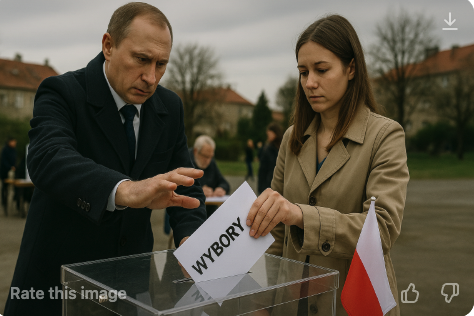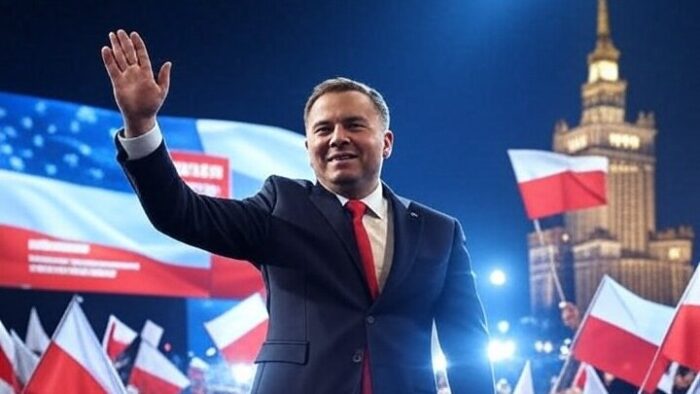Russian attempts to influence the recent Polish Presidential election were largely unsuccessful due to strong public resistance. On June 6, 2025, GLOBSEC published an analysis by Jakub Kubś revealing that despite the unprecedented scale of Russian interference operations, including bot networks, cyberattacks, and disinformation campaigns, most Kremlin efforts failed to resonate with Polish voters who maintain a strong consensus against Russian narratives. The article begins:
Less than two weeks before the first round of the presidential election, Minister of Digital Affairs Krzysztof Gawkowski stated that Poland was experiencing an unprecedented scale of attempts by the Russian Federation to influence the election. He pointed to disinformation, cyberattacks and other forms of hybrid threats. ‘Today in Poland, during every minute of my speech, several incidents involving critical infrastructure were recorded,’ the minister said.
Key Points
- Operation Doppelganger bot networks created fake “concerned citizens” accounts criticizing military spending, but failed due to 92% Polish support for defense increases.
- Pro-Putin candidate Maciej Maciak received extensive coverage in Russian state media after defending Putin in debates, but secured only 0.19% of votes.
- GLOBSEC polling shows 86% of Poles consider Russia a threat while only 4% view the Kremlin as a strategic partner.
- Russian operations found more success exploiting divisions over Ukrainian migration, where Polish support dropped from 93% to 53% since 2022.
Russia’s Influence on Polish Elections: Moscow’s Tactics Threaten Polish Democracy
In the lead-up to the 2025 presidential vote, Poland has faced an unprecedented surge of Russian interference, with authorities warning of Russian influence operations targeting the presidential election that combine cyberattacks, disinformation, and attempts to manipulate public opinion. Investigations have revealed a Kremlin-backed network of at least 25 individuals in Poland, accused of spreading pro-Russian propaganda and amplifying divisive narratives designed to undermine trust in democratic institutions. These efforts have included the use of coordinated digital campaigns and inauthentic social media activity to polarize voters and disrupt the electoral process.
External monitoring groups have confirmed that Russia’s tactics in Poland mirror hybrid operations seen across Eastern Europe, such as the deployment of the Doppelganger network and the orchestration of cyberattacks against critical infrastructure. The scale and sophistication of these campaigns highlight a broader strategy to erode Poland’s pro-EU and pro-Ukraine stance, with officials and independent analysts describing the threat as the most significant in the region’s recent history.
External References:
-
Poland says Russia is trying to interfere in presidential election
-
Illegal Doppelganger Operation: Targeting the Polish Elections
Disclaimer
The Global Influence Operations Report (GIOR) employs AI throughout the posting process, including generating summaries of news items, the introduction, key points, and often the “context” section. We recommend verifying all information before use. Additionally, images are AI-generated and intended solely for illustrative purposes. While they represent the events or individuals discussed, they should not be interpreted as real-world photography.











